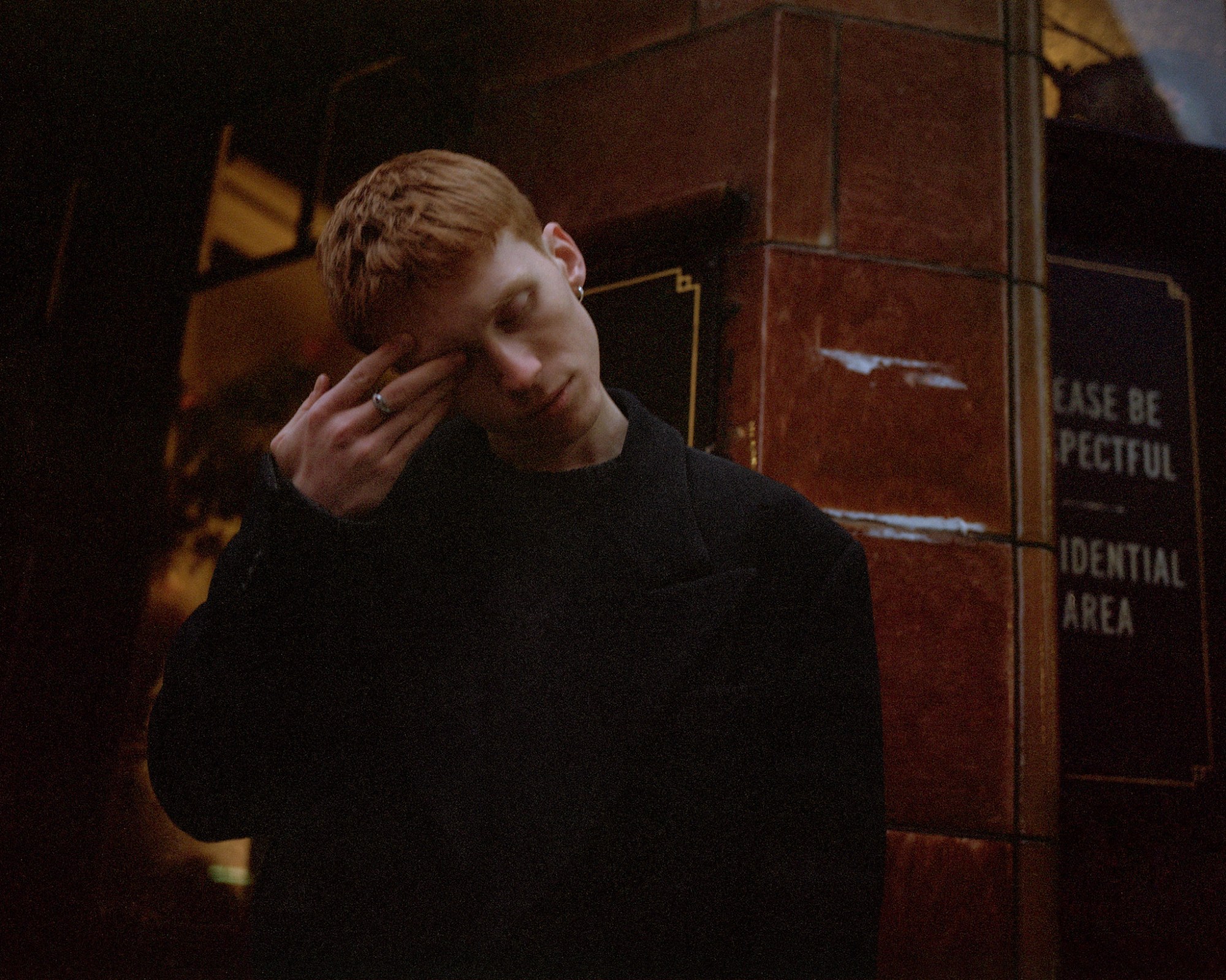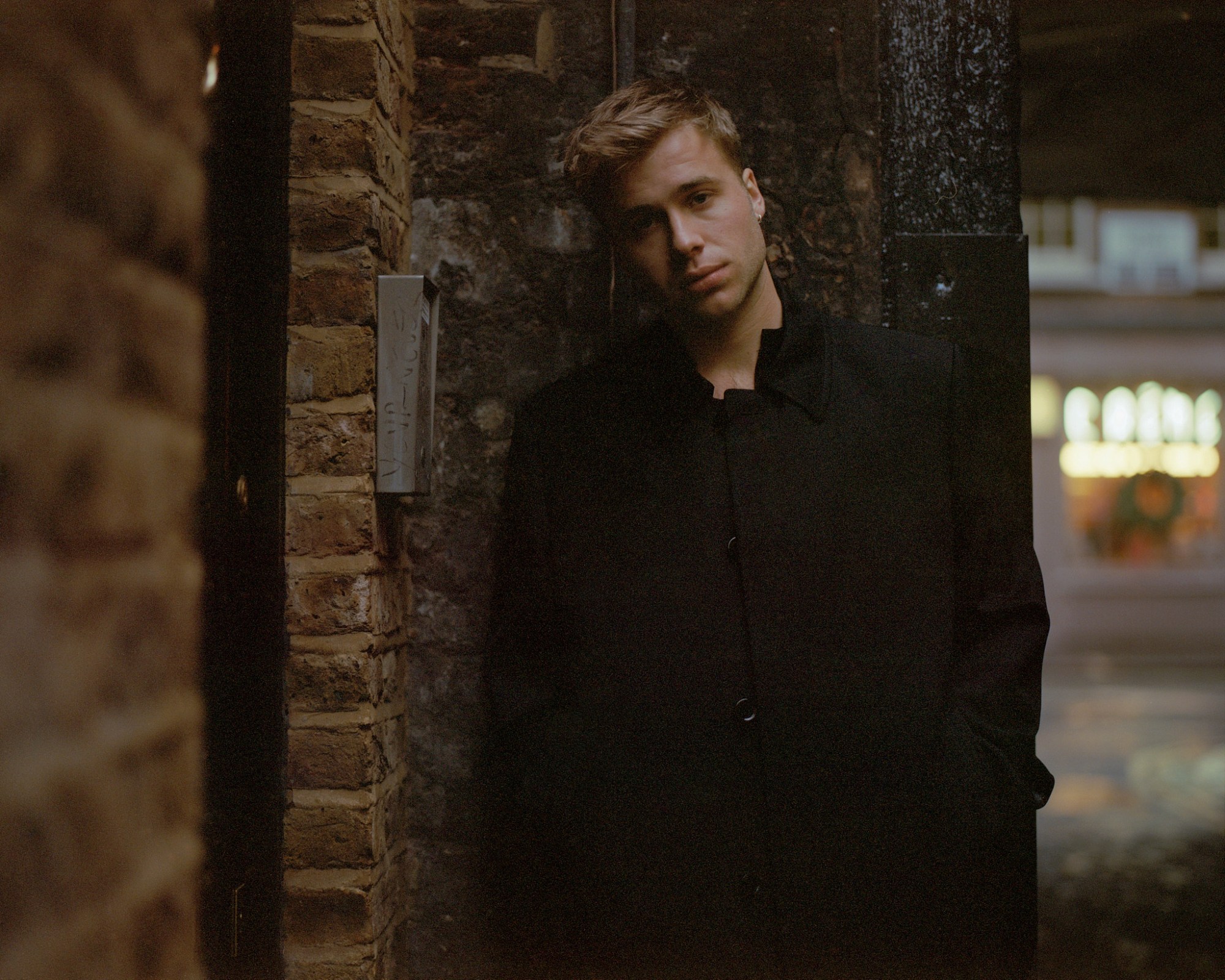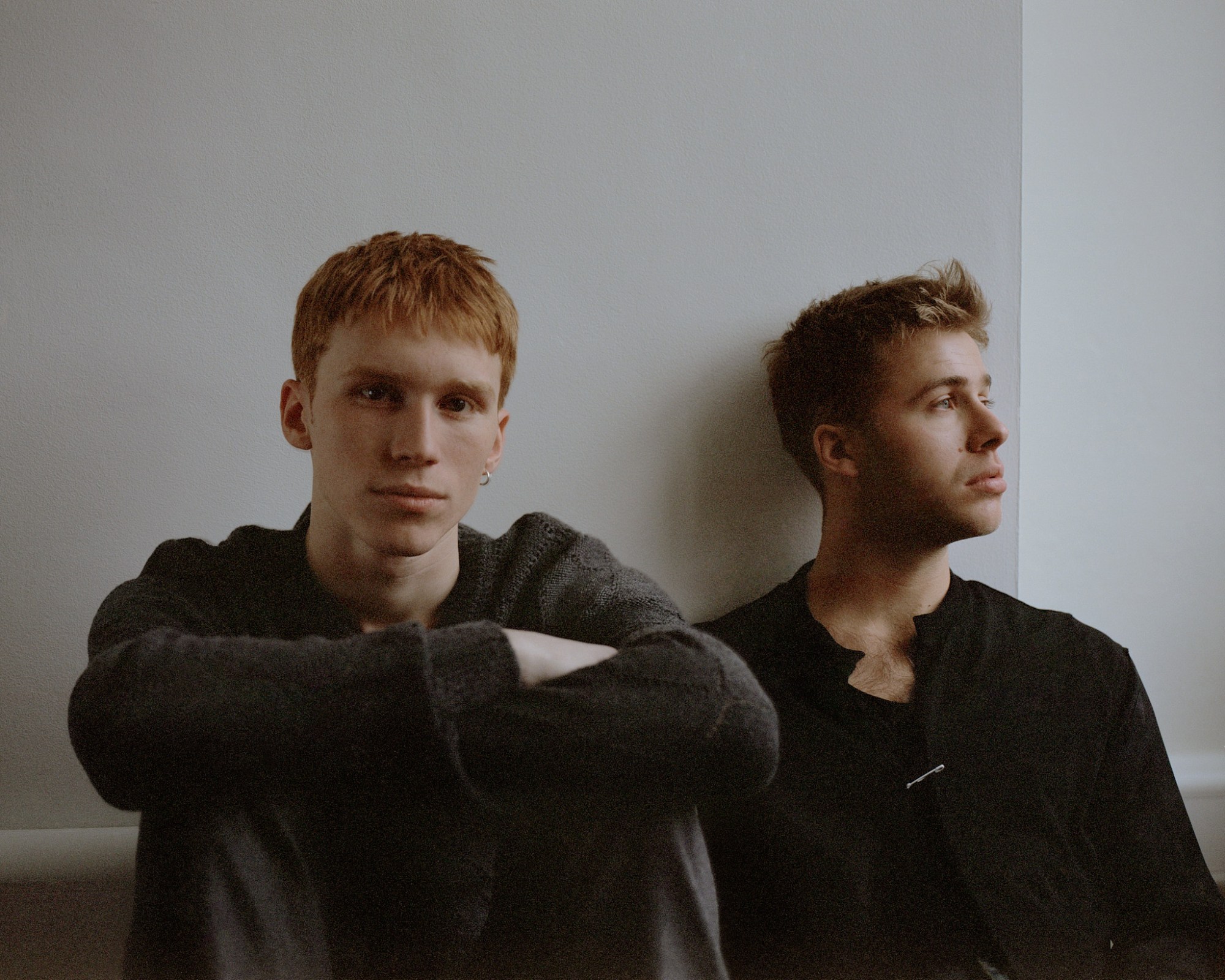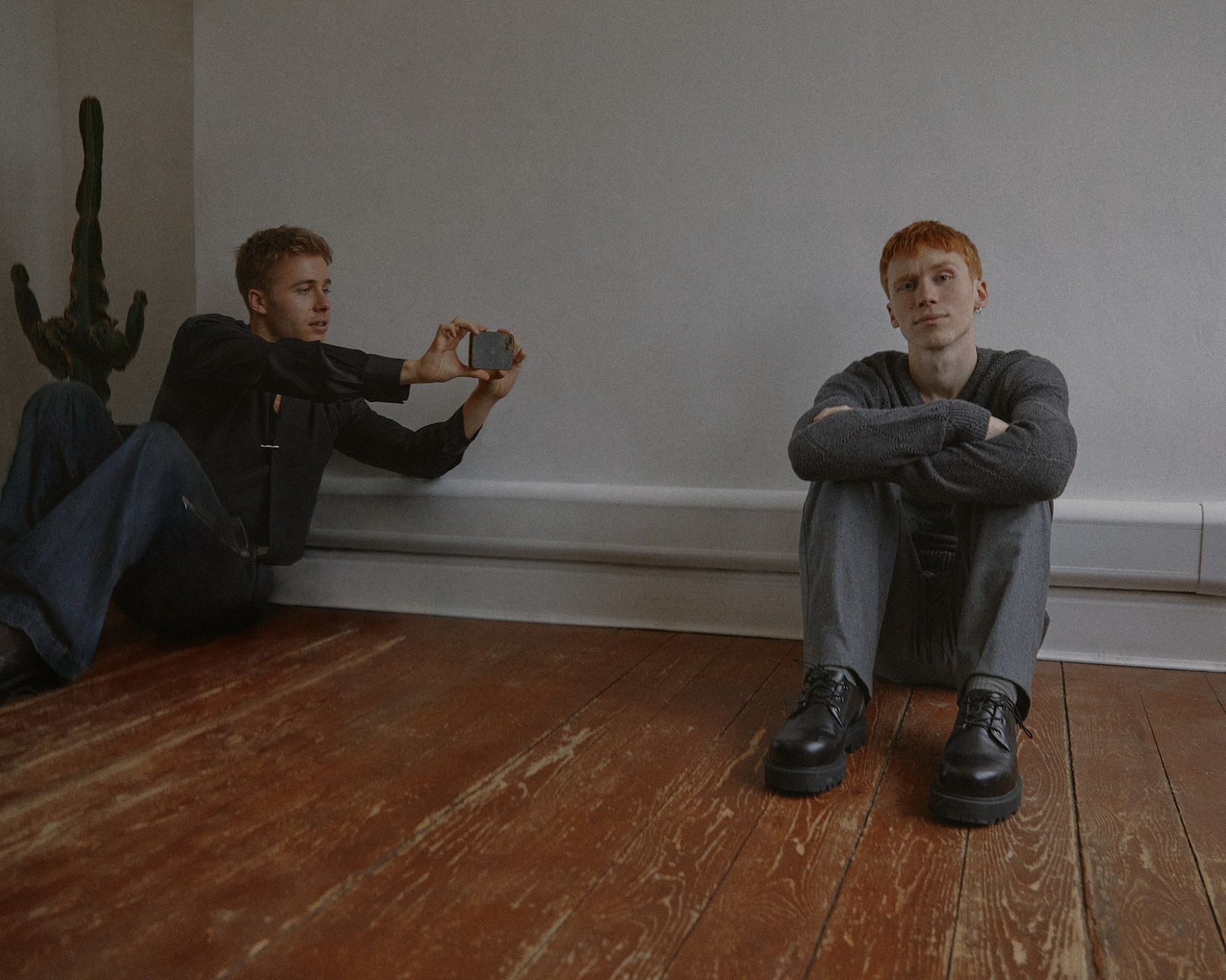Ed McVey and Luther Ford are getting the hang of red carpets. The newest stars of The Crown, who play Princes William and Harry respectively, in the final season, are calling from Oslo. It’s seven o’clock in the morning, the day after the show’s European premiere. Days before that, they’d been at the premiere in London. Today, they’re en route to New York. Much of the same thing.
“It’s definitely overstimulating,” Ed says, “but I wouldn’t really have it any other way — being able to celebrate it and talk to people and go to lovely places — but yes, it’s stimulating and tiring, for sure.”
Oslo, in typical Scandi fashion, has been a moment of respite: “The photographers were silently directing us,” Luther says, with Ed chiming in: “A new experience [compared to] being shouted at.”
On the subject of novel experiences, the very act of being in The Crown is one too. The Netflix series is both Ed and Luther’s first professional screen job, the pair joining for the last six episodes of the long-running show, which depict William and Harry reaching adulthood and grappling with unwanted fame after Princess Diana’s death.
The size and scope of The Crown has led to fact and fiction running in parallel for previous cast members: as their on-screen counterparts grappled with the intense publicity of being a royal, actors such as Vanessa Kirby, Emma Corrin and Josh O’Connor leveraged their roles in The Crown to forge successful careers in both blockbusters and independent cinema. While the final season tracks William and Harry’s difficult relationship with fame, Ed and Luther themselves stand on a curious precipice: they’re meeting audiences for the first time playing two of the most public men in the world.

Devon native Ed, 24, a graduate of Drama Centre London, “always wanted to act,” he says, with great teachers and supportive parents helping him pursue it. After a handful of stage roles in London, the opportunity to audition for The Crown came via his agent, and he endured five months of callbacks and chemistry reads before landing the role. In contrast, 23-year-old Luther from north London hadn’t given much thought to acting. As a budding filmmaker, he’d made several short films. It was his brother’s girlfriend who linked the open casting call for Prince Harry to the family group chat, urging him to try.
“I don’t think I truly believed that it was a possibility,” Luther says, “but it seemed like a strange and exciting idea, even just to audition for it. I did it on a bit of a whim, and then I started getting recalls. I was cast quite late; it happened really quickly, in the space of about three weeks. It was mind-blowing.”
His excitement turned into fear. “In the first couple of weeks after I’d got it, I was just kind of walking around going, ‘I’m in The Crown, I’m in The Crown.’ And then it was like, ‘Oh my fuck, I’m in The Crown. Jesus Christ. What am I gonna do?’”
As the reality of the job sunk in, The Crown’s research team gave Ed and Luther information packs spanning the period of 1997 to 2005, as William graduates from Eton and meets Kate Middleton (Meg Bellamy) at St. Andrews University, and Harry begins to rebel under his shadow. Both worked with William Conacher, The Crown’s dialect coach, to find the princes’ voices, which are slightly less antiquated than older royal family members. “There was contact with the outside world and an awareness of popular culture,” Luther says, “whereas past generations [of the royal family] were more isolated.”
Luther felt the voice was the “most important thing” to grasp early on, and he listened to the audiobook of Harry’s biography Spare, as Harry himself narrates it. He was wary of imitation. “It’s very, very, very hard for it not to become kind of quite obsessive, and just become an impression, because you’re focusing so much on trying to replicate something,” he says. “It doesn’t really allow room for imagination, which is most of what the job is, really.”

The two young actors soon found themselves on lushly decorated television sets surrounded by a who’s who of British acting legends, often acting opposite Imelda Staunton, Jonathan Pryce, Lesley Manville and Dominic West in the same scene. Ed calls it “a masterclass you can’t buy. Everyone works so differently, so I tried to take the bits that I really loved and mold them into my work as much as possible,” he says.
Ed has several pivotal one-to-one scenes with Dominic and Imelda, who play Prince Charles and Queen Elizabeth II respectively, including one with the latter in which William raises his younger brother’s love of the “wacky baccy”. Ed admits it was a difficult phrase to say in front of his on-screen grandmother with a straight face. “We had him saying weed, and wacky baccy, and I think we had ganja as well,” he says, laughing. “Wacky baccy is definitely the best one.”
The pressure of playing very famous real people was something both felt keenly, no less the idea that the princes themselves might see it. “You try not to think about it because it can potentially be a debilitating thought,” Ed says. “I appreciate that they’re looking at it through a particular lens, but if there’s an element of connection that can be made anywhere in it, if they can take something away from it, that’s obviously great.”
When we first meet Ed’s William, he is almost literally buckling under pressure: devastated by the death of his mother and frustrated by the public demands of his role, his shoulders slump forward as he tries to almost fold inwards and disappear entirely. “When you find William, he’s very much being thrust onto the world stage and is being compared a lot to Diana,” Ed says. “I think he finds it very, very difficult and doesn’t want to be the center of attention. Fundamentally, he’s in lots of pain, and doesn’t want to have to keep smiling and be Prince William for everyone. He’s trying to make himself, from a physical standpoint, as small as possible.”
The young Prince William’s eventual positioning as a teenage heartthrob is explored in episode five, as piles of fan mail arrive at his dorm in Eton, and crowds of teenage girls scream for his attention at public appearances. Those scenes were among the easiest to shoot, Ed says, because so much of the hysteria was there, on set, in the moment. “I think I was under the impression that a lot of that would be done in post,” he says, laughing. “In episode five, when we arrived at the Greenwich Naval College, they had a girls youth choir [as extras]. There were about 60 young women that were very good at using their voice. So, as you can imagine, these were trained women that could really scream, and they were very, very loud.

“I mean, you get so much for free,” he adds. “When that’s happening to you, you don’t really have to act, because it’s really happening, and it’s overwhelming.”
As Ed and Luther prepare for their own public profiles to grow, both are considering their next steps with a mixture of excitement and trepidation. “I’d love to keep making films, and I think that’s my long term ambition,” Luther says. “It can be a brutal industry, but I’d love to keep acting if possible. I’d like to play a villain, or someone in a cape. Like an evil caped man.”
“It’s a weird one starting at this level because it’s only down from here,” Ed says, a little jokingly. “This is the first bit of screen [work] for me, so I’ve definitely fallen in love with it. I also started in theatre, so I hope to not lose that either.” They share a similar outlook, it seems. As Ed says: “I hope I get to do as much as possible, and work with good people.”
The second part of the final season of ‘The Crown’ is streaming on Netflix now.

Credits
Photography Richard Dowker
Luther’s Styling Ben Schofield
Ed’s Styling Holly White
